
Understanding the Life & Ministry of Jesus
Hebraic Perspective by
Dr.John DeLancey
Understanding Jesus in the historical context of second temple Judaism, John digs deep into the biblical lands for the sake of spiritual growth and appreciating the roots of Christianity. He attempts to present a plain view of who Jesus was from an undervalued perspective. His research and new approach have led to discoveries that can give a better insight on Jesus by returning to the Jewish culture, heritage, social and political culture in which Jesus lived. John explores the fundamental traditions of the Jewish faith, illustrating a perspective that is prudent for Christians today to understand the ministry and message of Jesus and further applying it to their contemporary lives. The author addresses the role of the Torah and the rabbinic technology as well as the sects of Yeshua’s Day to achieve the intended purpose. More specifically, John DeLancey concludes that the Christian scriptures reflect the Herabic view of reality.
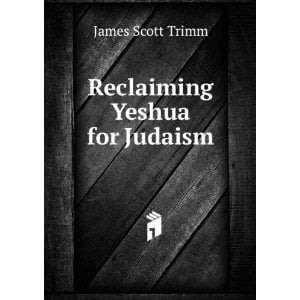
Reclaiming Yeshua for Judaism
Yeshua and Judaism by
James Scott Trimm
Forget everything you have ever heard about “Jesus” . The majority of it is simply false. His name was not Jesus, he was not born on December 25th, he was not the founder of Christianity, he did not wear a toga, have blue eyes, a goatee beard or blond hair. The historical “Jesus of Nazareth” has been hijacked by Gentiles, paganized, helenized and stripped of his Torah Observant Judaism.

Who is Israel?
Church and/or Israel? by
Bruce Booker
Who is Israel? explores; Is Israel simply a person, or a people? If a people, who does it consist of? For many centuries now, the Church has proclaimed that it has replaced the physical descendants of Abraham, Isaac and Jacob. In this book, we examine the implications of that proclamation in the light of Scripture and history.

What is Nazarene Judaism?
First Believers were Nazarenes by
James Scott Trimm
An account of the ancient Sect of the Nazarenes, the original followers of Yeshua as the Messiah.
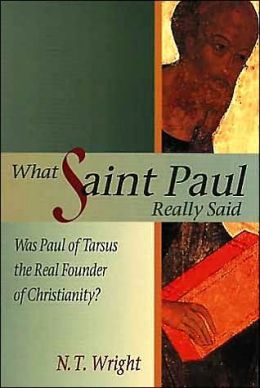
What Saint Paul Really Said
Paul the founder of Christianity? by
Dr. NT. Wright
What Saint Paul Really Said;Paul has provoked people as much in recent times as he did when he was alive. Some regard him as a pestilent and dangerous fellow. Others think of him as the greatest teacher of Christianity after Jesus himself. In this book, leading theologian Tom Wright focuses on key areas of Paul’s teaching,helping us to understand what he was doing and saying. He sweeps away the confusion of much modern theology to uncover the real man and his message.
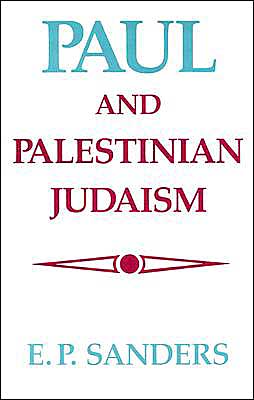
Paul and Palestinian Judaism
Early Palestinian Judaism by
E.P.Sanders
Paul and Palestinian Judaism ;In the past three decades reasons have accumulated for a transformation of our whole picture of Judaism in first-century Palestine. Sanders has listened to those reasons; he has done his homework; and he undertakes here to shift the question about Paul’s relation to that Judaism into a fundamentally different perspective.
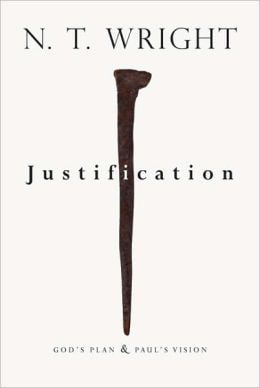
Justification
Justification and Covenantal Nomianism by
Dr.NT. Wright
In this Justification a riveting book, N. T. Wright explains that God’s salvation is radically more than this. At the heart of much vigorous debate on this topic is the term the apostle Paul uses in several of his letters to describe what happens to those in Christ?justification. Paul uses this dramatic image from the law court to declare that Christians are acquitted of the cosmic accusations against them. But justification goes beyond this in Paul’s writings to offer a vision of God’s future for the whole world as well as for his people.
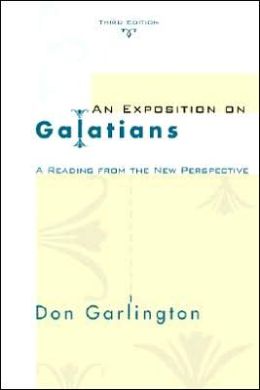
An Exposition of Galatians
The “New Perspective” by
Don Garlington
An Exposition of Galatians states that the present commentary seeks to be a kind of halfway house between highly technical and popular treatments of Galatians. Its purpose is to make the exposition as user-friendly as possible with only as many technicalities as necessary to accomplish that end. The emphasis of the work is decidedly theological, with attention focused on the salvation historical argument of Paul’s letter. Its main target audience includes pastors, students, and Pauline scholars.